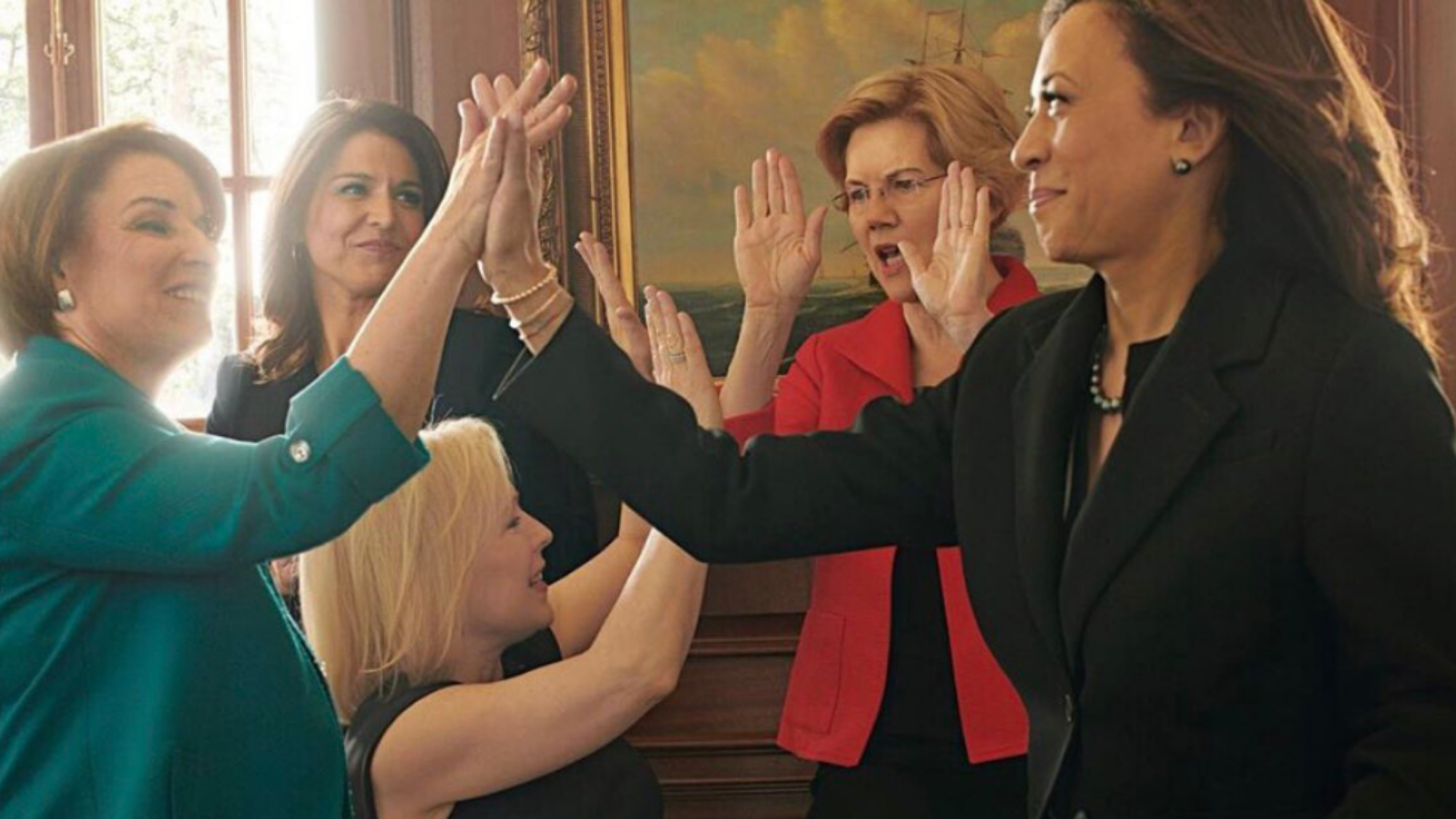(Photo Credit: Annie Leibovitz, Vogue, August 2019)
A recent report from McCourt’s Center on Education and the Workforce finds that while women can still win in politics, the playing field still is not level.
The 2020 Democratic race set the record for the number of women competing for one party’s presidential nomination. With only one woman remaining in the race, the McCourt School’s Center on Education and the Workforce (CEW) recent report examines education and bias against women in American politics.
As women continue to rise up in the ranks of politics, the issue of “likability” becomes more prevalent, and research has shown that being likable is more important than any other factor to a woman’s success in a political race. Further research shows, to succeed in positions of leadership, women often have to be strong and decisive, but in doing so, they risk being penalized for violating social norms.
The CEW report mentions that “while the challenges facing women in politics are not unique to the United States, societal expectations have not stopped women from becoming heads of state in other countries, including Brazil, Denmark, Germany, New Zealand, Trinidad and Tobago, and the United Kingdom.” The first woman elected to the US Congress was Jeannette Rankin in 1916, four years before women had the right to vote nationally. Women’s representation as a proportion of elected officials has grown since then, but women have not yet achieved equal representation.”
Below you will find six graphics analyzing trends in American’s views on women in politics. Read the full report from CEW.
Sex: Bias against women in politics has declined over time, but 13 percent of both men and women still have doubts about most women’s emotional suitability for politics.
Are men better suited emotionally for politics than most women? (percent answering “yes” by sex)
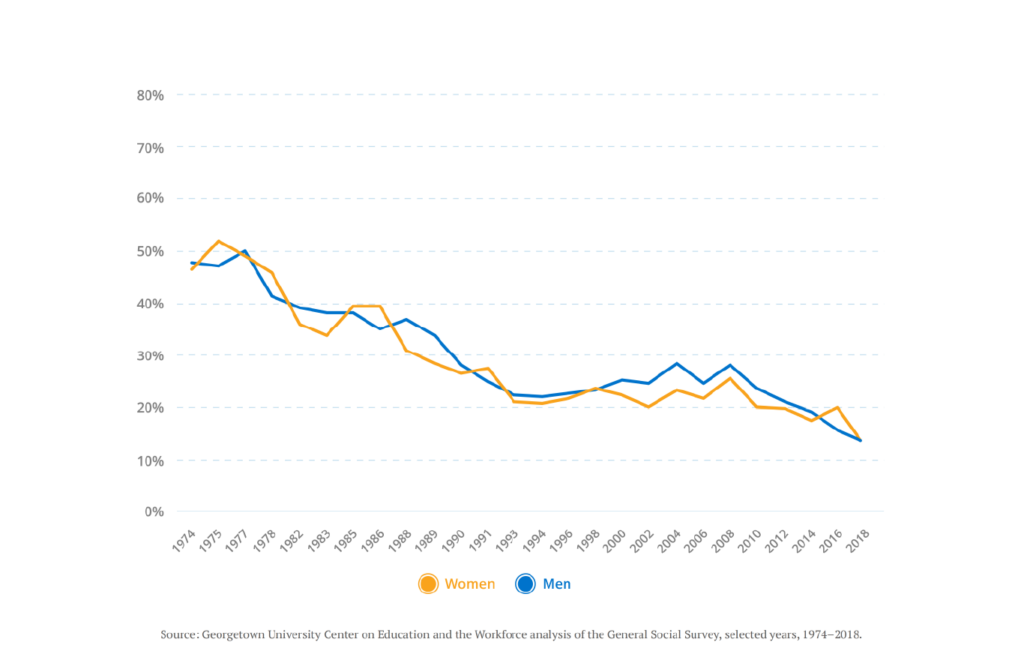
Age: Older women used to be the most uncomfortable of all groups with women in politics, but that has changed.
Are men better suited emotionally for politics than most women? (percent answering “yes” by age cohort and sex)
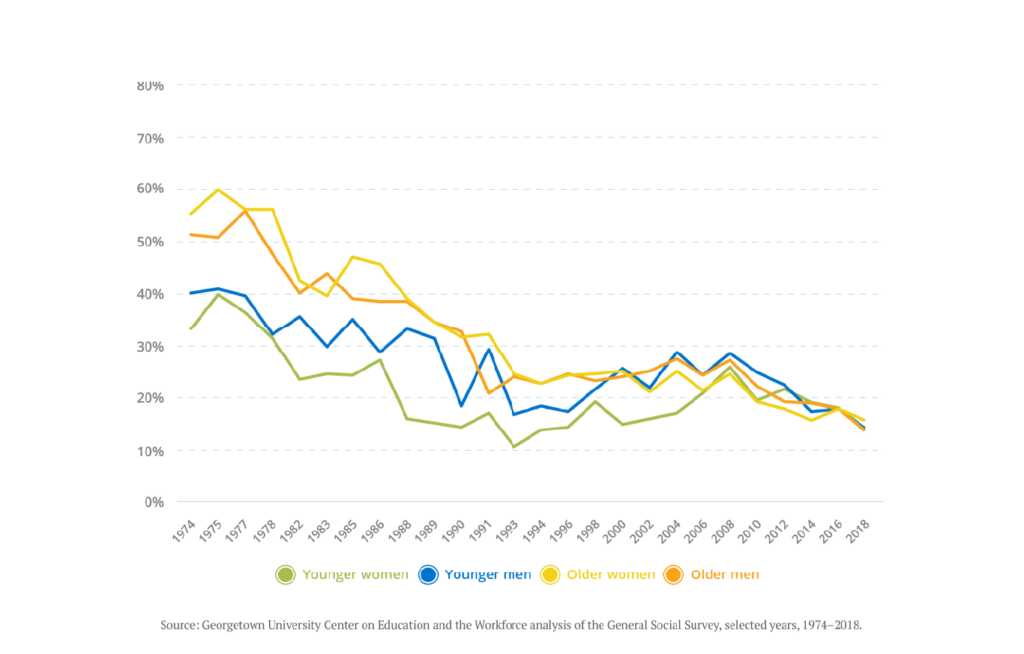
Family Income: Family income level does not generally predict people’s views of women in politics, although those with lower family incomes held more negative views than those with higher family incomes until 2002.
Are men better suited emotionally for politics than most women? (percent answering “yes” by family income)
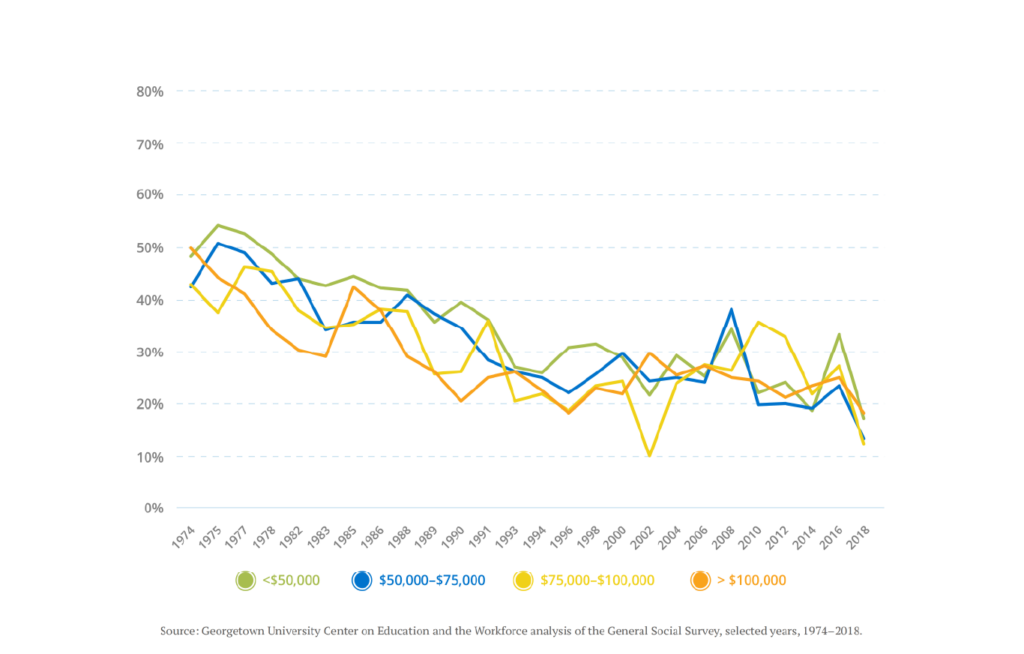
Race: Black American’s are more likely than white American’s to believe that women are less suited emotionally for politics than men.
Are men better suited emotionally for politics than most women? (percent answering “yes” by race)
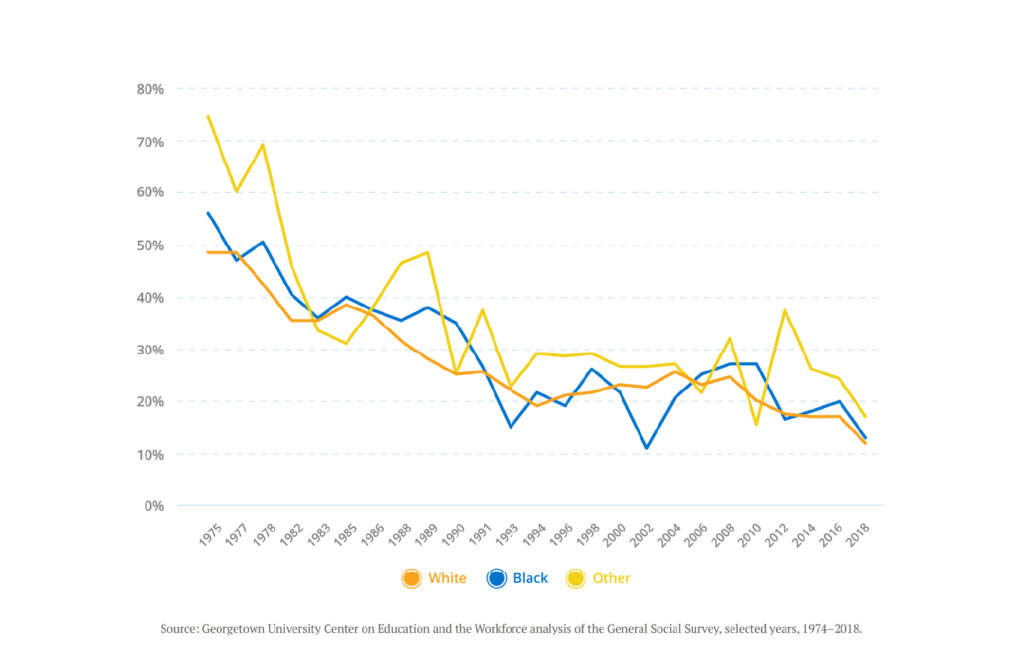
This chart shows that Black American’s are more likely than white American’s to believe that women are less suited emotionally for politics than men.
Political Affiliation: Strong Republicans are more likely than strong Democrats to believe that men are better suited emotionally for politics than most women.
Are men better suited emotionally for politics than most women? (percent answering “yes” by sex and political party)
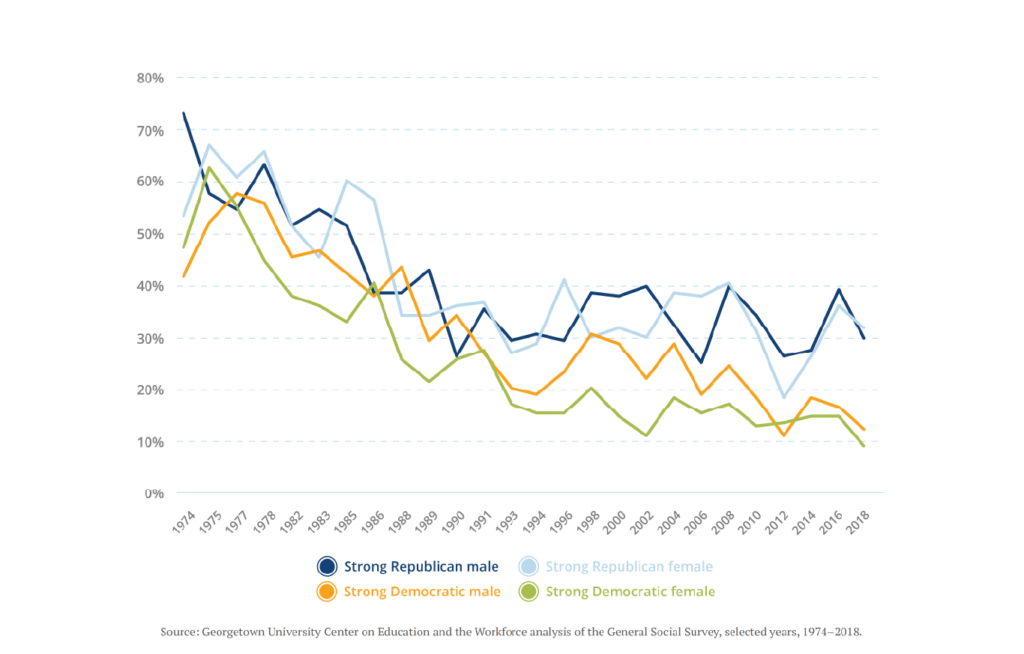
Education: People with higher levels of educational attainment have more favorable views of women in politics.
Are men better suited emotionally for politics than most women? (percent answering “yes” by education level)
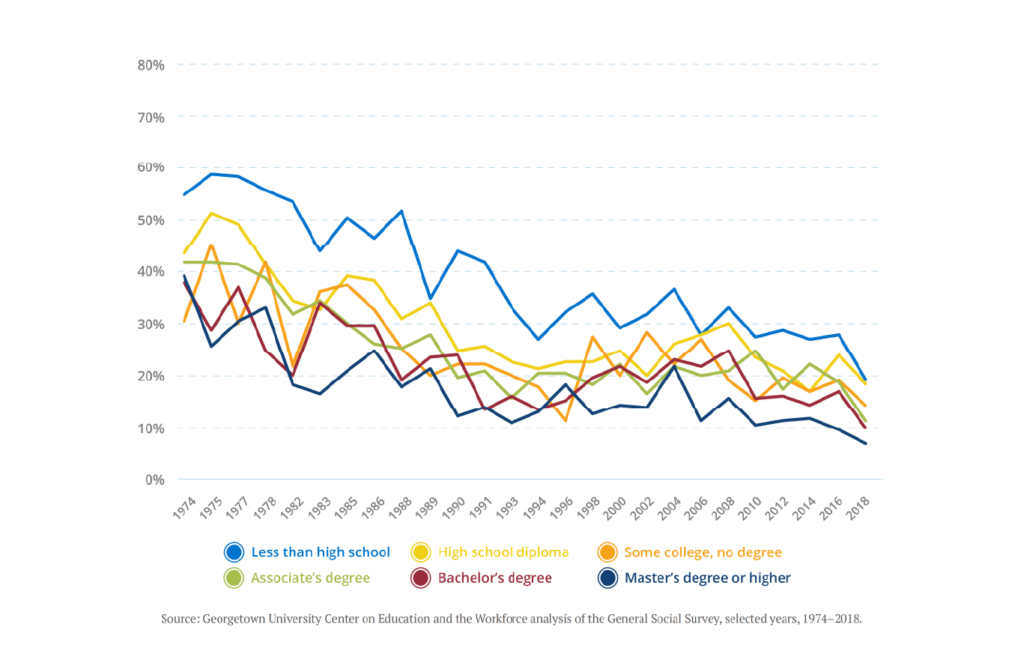
About the Center on Education and the Workforce:
The Georgetown University Center on Education and the Workforce (CEW) is an independent, nonprofit research and policy institute affiliated with the Georgetown McCourt School of Public Policy that studies the link between education, career qualifications, and workforce demands.
